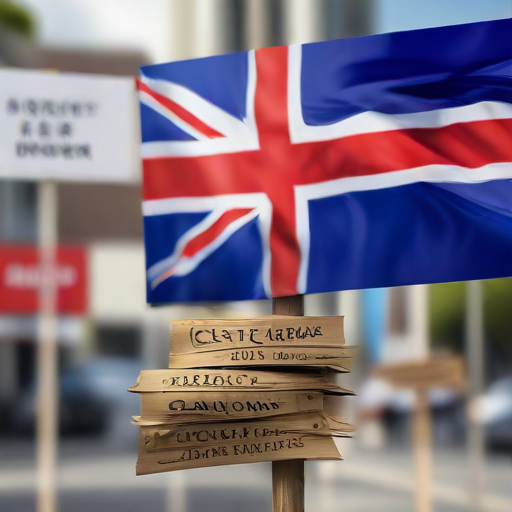New Zealand’s parliament experienced a significant disruption on Thursday, leading to the suspension of a vote and the ejection of two lawmakers amidst heated debates over a proposed law that seeks to redefine the relationship established by the 1840 Treaty of Waitangi between the Indigenous Māori and the British Crown.
The Treaty of Waitangi lays out the government’s obligations towards Māori tribes, ensuring their rights to land and cultural protections in exchange for governance. The controversial bill aims to extend these rights beyond Māori to all New Zealanders, triggering intense reactions from both supporters and detractors. Critics argue that the legislation poses a risk of racial tension and threatens to disrupt New Zealand’s constitutional foundations. Protests against the bill have erupted nationwide as thousands voice their opposition.
Despite its unpopularity, the proposed law advanced past its initial vote due to unique aspects of New Zealand’s political dynamics, which empower smaller parties to exert influence. This legislative move comes amid growing concerns from segments of the population regarding the pace of progress in recognizing Māori rights since colonization.
Historically, the Treaty of Waitangi has been the source of friction, as discrepancies between its English and Māori versions have led to issues concerning land rights and Indigenous representation. Legislative progress has been made since the 1970s to address these disparities, but David Seymour, leader of the minor ACT party and author of the bill, contests that no resolution has been reached regarding the treaty’s principles, stating that it is time for parliament to address this “silence.”
Prime Minister Christopher Luxon, although against the bill, voted for it as part of a political agreement with Seymour to secure his leadership position. This created tension within Parliament, leading to lawmakers expressing their opposition even as they were compelled to vote for the proposal.
The atmosphere in the chamber was charged, with opposition members openly criticizing the bill and its supporters. The tense exchange culminated in a protest chant led by a Māori lawmaker, which contributed to the chaotic scene before the vote proceeded.
The legislation will enter a public submission phase before a second vote is scheduled, with Seymour anticipating significant public support to persuade Luxon to reconsider. Furthermore, a large-scale rally is planned in Wellington next week, expected to be one of the most significant marches addressing race relations in New Zealand’s history.
This situation reflects not only the complexities of New Zealand’s socio-political landscape but also highlights the ongoing dialogues regarding race, identity, and justice. The robust public engagement suggests a growing awareness and desire for more inclusive governance, signaling a potential shift towards reconciliation and understanding of Māori rights in New Zealand.
In summary, while the debate surrounding the proposed law has sparked intense division, it has also ignited a renewed dialogue about a vital aspect of New Zealand’s identity. As the public prepares for upcoming protests, there is hope for a transformative conversation that could lead to greater unity and understanding between communities.
